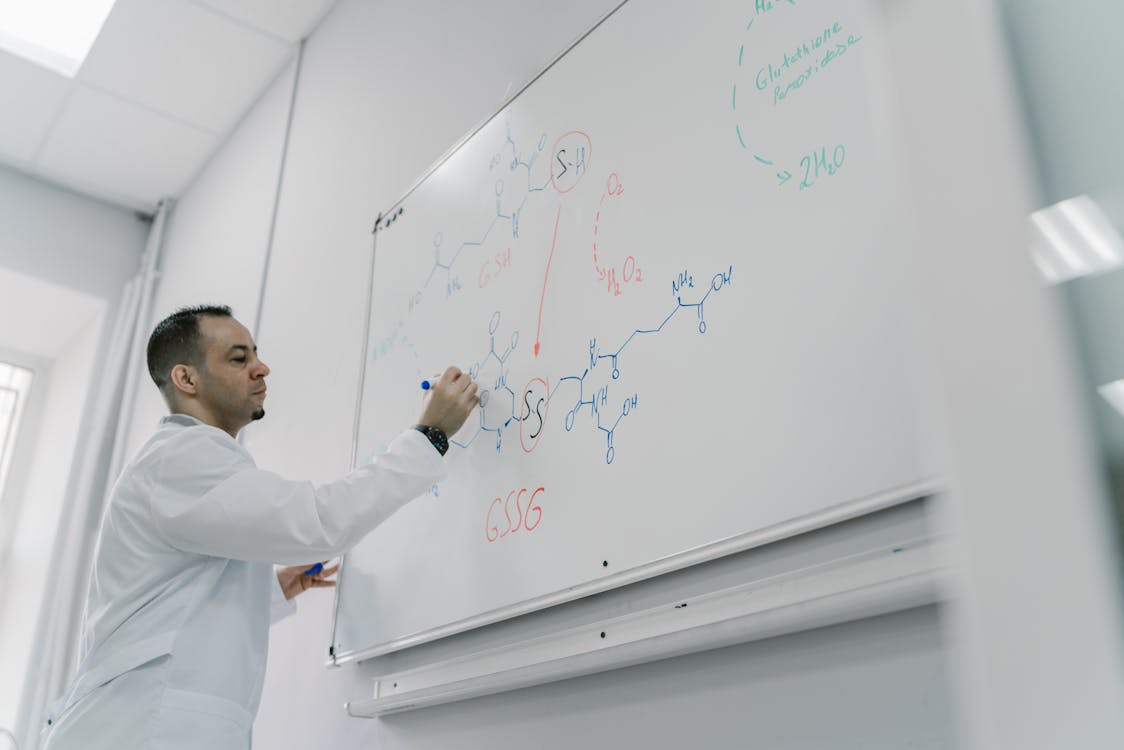10 Strategies How to Prevent PhD Dropout in First Year
Graduate School
In the early stages of a PhD program, anxiety and uncertainty can lead to significant dropout rates. It has been statistically observed that up to 50% of PhD students consider leaving their programs during their first year. This phenomenon often stems from several pressures, including academic workload, isolation, and lack of structured support. Thus, understanding how to prevent PhD dropout in the first year is critical for both new students and academic institutions. This guide presents practical solutions and actionable steps that can help overcome these hurdles effectively.
1. Build a Strong Support Network
Establishing a robust support network can significantly bolster confidence and motivation in a PhD journey. A strong network often includes peers, advisors, and mentors who provide emotional and academic support. Research has shown that having even one supportive person can greatly reduce the likelihood of dropout.
Key aspects to consider:
- Join Student Groups: Participate in university affinity or interest-based groups. These platforms provide opportunities to meet fellow students who share similar experiences and challenges.
- Seek Mentorship: Connect with established professionals or alumni in the field who can provide guidance. This relationship can offer insights into academic pressures and strategies for success.
- Utilize University Resources: Most universities have counseling services and workshops focused on academic success. Engage in these to broaden the support network.
As new challenges emerge during the PhD journey, having a supportive network can be a crucial lifeline. Regular check-ins with peers and mentors can offer not only motivation but also constructive feedback.
2. Effective Time Management Techniques
Time management is critical in balancing research, coursework, teaching responsibilities, and personal life. Ineffective time management can lead to overwhelm and burnout, contributing to potential dropout.
Important considerations:
- Prioritize Tasks: Use tools such as Eisenhower boxes to categorize tasks by urgency and importance. This allows for focused efforts on priority items.
- Create a Schedule: Develop a weekly plan that allocates specific time blocks for research, studying, meetings, and self-care. Adhering to a set routine promotes productivity and reduces procrastination.
- Set Mini-Goals: Break projects into smaller, manageable tasks. This method not only enhances focus but also provides a feeling of achievement, which can motivate continued progress.
Implementing structured time management techniques allows PhD candidates to navigate their responsibilities more effectively, fostering a sense of control over their academic journey.
3. Research Funding Application Guide
Securing research funding can be pivotal in a PhD student's experience, easing financial burdens and allowing more focus on academic inquiry.
Steps to consider:
- Identify Opportunities Early: Research grants and scholarships should be identified as early as possible. University financial aid departments or academic departments often have resources for available funding.
- Develop Strong Applications: Seek guidance on grant writing and application processes. Many universities offer workshops or mentors who specialize in grant applications, which can be invaluable.
- Network with Funding Bodies: Attend meetings or conferences where grant providers are present. Building relationships can enhance understanding of funders' expectations and improve application success rates.
Funding challenges can significantly affect the ability to continue a PhD program. Taking proactive steps in this area can lead to better financial security.
4. Supervisor Communication Best Practices
Effective communication with supervisors is paramount to ensuring alignment on research goals and expectations.
Considerations:
- Schedule Regular Meetings: Consistent communication helps clarify expectations and provides opportunities to address concerns early. Weekly or bi-weekly meetings can help maintain momentum.
- Be Prepared: Before meetings, come prepared with questions and updates on progress. This shows engagement and responsibility.
- Seek Feedback: Actively request feedback on research proposals and progress. Constructive criticism is an opportunity for growth.
Strengthening supervisor relationships through open and consistent communication significantly reduces misunderstandings and contributes to a healthier PhD experience.

Establishing strong communication channels with supervisors helps prevent PhD dropout in the first year.
5. Mental Health Maintenance Tips
Maintaining mental health is essential for managing the stressors of a PhD program. Many students face anxiety and depression that can impede their progress.
Key aspects to consider:
- Regular Breaks: Schedule breaks during work periods to refresh. Utilizing techniques like the Pomodoro technique can enforce this habit.
- Practice Mindfulness: Incorporate mindfulness practices, such as meditation or yoga, to reduce stress levels. Engaging in these activities helps improve focus and emotional regulation.
- Seek Professional Help: Do not hesitate to reach out for professional counseling services if needed. Universities typically provide mental health resources geared toward student support.
Prioritizing mental health not only enhances personal well-being but also supports academic performance.
6. Work-Life Balance Scheduling Methods
Achieving a work-life balance is essential but can be challenging during intense periods of study and research.
Important considerations:
- Define Work Hours: Clearly delineate work hours and downtime. This distinction aids in maintaining boundaries and prevents burnout.
- Incorporate Leisure Activities: Schedule time for hobbies and social events. Engaging in relaxing and enjoyable activities replenishes energy and creativity.
- Practice Saying No: It is critical to evaluate commitments and decline additional responsibilities when they conflict with personal well-being.
Setting the groundwork for a healthy work-life balance fosters sustainability throughout PhD studies.
7. Academic Goal Setting Framework
Developing a clear framework for setting academic goals can provide direction and clarity in the often ambiguous landscape of PhD work.
Steps to consider:
- Use SMART Goals: Goals should be Specific, Measurable, Achievable, Relevant, and Time-bound. This clarity can keep efforts focused and aligned with overall ambitions.
- Track Progress: Regularly review and adjust goals as necessary. Using a digital tool or planner can help maintain visibility and accountability.
- Celebrate Milestones: Rewarding progress, no matter how small, can motivate persistence and resilience in the academic journey.
Setting clear academic goals propels students forward and reduces feelings of aimlessness.
8. Stress Management Exercises
Implementing various stress management exercises can be beneficial in managing the pressures associated with a PhD.
Tips:
- Breathing Techniques: Simple breathing exercises can effectively reduce immediate stress. The 4-7-8 breathing technique is a popular option.
- Physical Activity: Engaging in regular physical exercise not only improves mental health but also boosts cognitive function, enhancing research capabilities.
- Creative Outlets: Hobbies such as painting, writing, or music can serve as excellent stress relievers, providing emotional relief from academic pressures.
Integrating stress management practices into daily routines equips students with tools to handle pressure effectively.
9. Professional Development Planning
Developing a plan for professional growth can bolster confidence and ensure that PhD candidates are prepared for future opportunities after graduation.
Considerations:
- Attend Workshops and Conferences: Participation in industry-related events provides networking opportunities and helps stay abreast of developments in the field.
- Develop a Skill Set: Identify new skills that can enhance marketability after graduation. Online courses and self-study can be effective ways to gain expertise.
- Engagement in Research Projects: Collaborating on research with faculty can provide practical experience and insights, enhancing professional growth.
Creating a comprehensive professional development plan prepares PhD students for success beyond academic life.
10. Academic Community Engagement Tactics
Being active in the academic community can provide critical support and foster accountability during the PhD journey.
Ways to engage:
- Participate in Academic Events: Attend lectures, seminars, and workshops. Engaging with the academic community fosters networking and exposure to new ideas.
- Join Academic Societies: Becoming a member of academic or professional societies broadens access to resources and connects students with experienced professionals.
- Contribute to Journals or Blogs: Writing articles for academic journals or blogs can increase visibility and credibility in the field.
Active engagement with the academic community enhances the overall PhD experience while offering essential support systems.

Engaging with the academic community is vital for preventing PhD dropout in the first year.
Common Questions Answered
What are the main causes of PhD dropout in the first year?
Several factors contribute to dropout, including inadequate support systems, poor time management, financial stress, and lack of guidance from supervisors.
How can I effectively communicate with my supervisor?
Regular scheduling of meetings, preparing questions in advance, and actively seeking constructive criticism can facilitate clearer communication and stronger relationships with supervisors.
What should I prioritize for mental health during my PhD?
Mental health can be maintained through regular breaks, mindfulness practices, and utilizing available counseling services to address stress or anxiety.
How do I set achievable goals in my PhD?
Utilizing SMART criteria for goal setting is recommended. Regularly tracking and adjusting these goals will keep efforts focused and motivate progress.
What role does community engagement play in completing a PhD?
Engagement with the academic community offers essential support, inspiration, and networking opportunities that are crucial for motivation and success.
Best Practices
Strategic Framework
- Build Relationships: Establish connections with peers, mentors, and supervisors as foundational support.
- Develop Skills: Enhance skill sets through targeted workshops and online courses to better prepare for the diverse challenges of a PhD.
- Prioritize Well-being: Maintain mental health and a sustainable work-life balance as critical components of academic success.
- Engagement: Actively participate in community and academic networks to enrich the PhD experience.
Implementation Guidelines
- Set specific goals for relationship-building and community engagement.
- Draft a weekly schedule that incorporates work, rest, and engagement activities.
- Regularly attend professional development opportunities and assess skill growth.
Success Metrics and KPIs
- Define measurable achievements, such as completed projects, research milestones, and networking contacts established.
- Regular check-ins can provide feedback on stress levels and emotional well-being.
Risk Mitigation Strategies
- Prepare for potential financial challenges by creating a funding application timeline.
- Maintain ongoing communication with supervisors to address any emerging concerns promptly.
Future Considerations
- Stay informed about industry trends and evolving research topics that can enhance academic and professional development.
Key Takeaways
- Establish a strong support network to enhance resilience.
- Implement effective time management techniques to maintain control over academic responsibilities.
- Develop a proactive approach to securing research funding for financial relief.
- Prioritize regular communication with supervisors to clarify expectations.
- Focus on mental health maintenance through self-care practices.
- Strive for a balanced work-life schedule to encourage sustainability.
- Set clear academic goals using a SMART framework to guide efforts.
- Embrace stress management exercises as essential tools for health and productivity.
- Plan for professional development to improve future career prospects.
- Engage actively with the academic community for additional support and resources.
This comprehensive guide provides actionable insights and strategies on how to prevent PhD dropout in the first year, tailored for both current students and academic institutions. By implementing these frameworks and practices, graduate students can foster a supportive and productive environment conducive to successful academic completion.